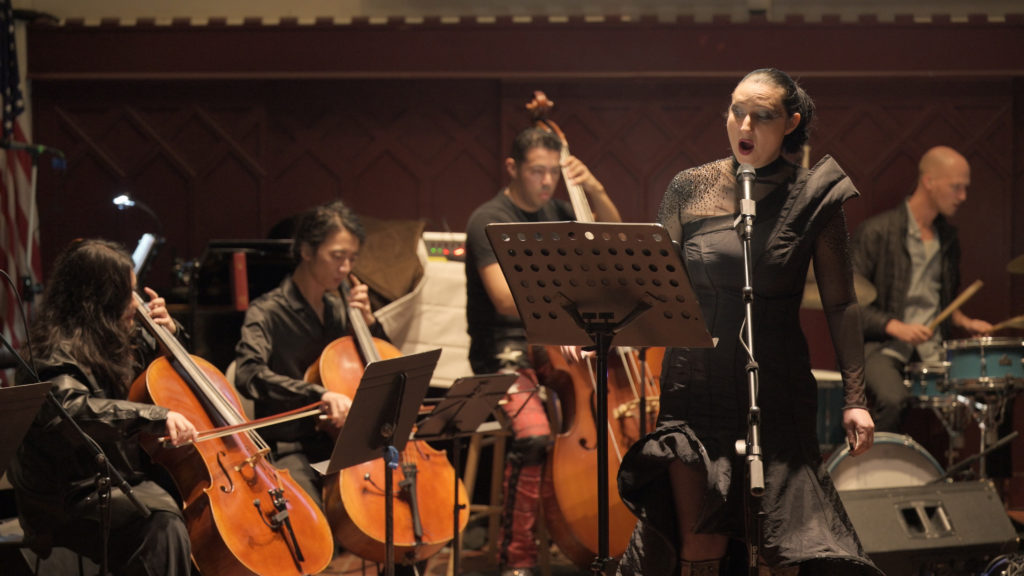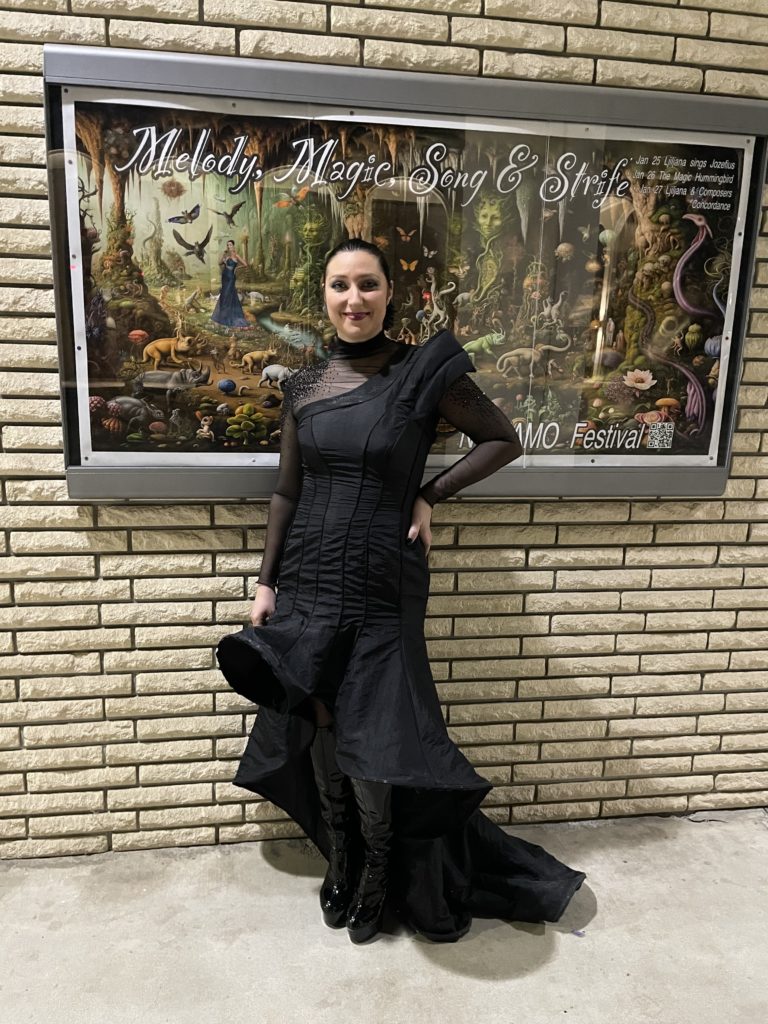Ljiljana Winkler Sings Songs by Joseph Martin Waters to Open the NWEAMO 2024 Festival
Thursday in the Great Hall of St. Paul’s Cathedral, composer Joseph Martin Waters, also known as Jozefius, opened his annual new music festival, the New West Evolving Arts & Music Organism (NWEAMO), now celebrating its 26th year. Waters devoted the program to 11 of his own songs for voice and instrumental ensemble, an understandable privilege for a musician who has devoted so much to the success of this festival for a quarter of a century.
Among the 17 adept performers, some of the musicians, notably fellow members of the San Diego State University music faculty saxophone virtuoso Todd Rewoldt and pianist Karen Follingstad, have worked with Waters for many years and know his style well, while others were university students and local free lance musicians. Fortunately, these musicians formed a persuasive ensemble that did justice to Waters’ complex, challenging works.
Special guest artist for the evening, soprano Ljiljana Winkler from Augsburg, Germany, offered vibrant interpretations of Waters’ songs. Winkler’s pellucid declamation of the text combined with a strong, well-focused dramatic soprano provided the necessary power to balance the composer’s daunting, athletic instrumental components.“Hope,” the program’s opening song, began deceptively with just a clear solo vocal line. Soon a pair of saxophones as well as the piano with bass and percussion entered to develope into a pulsing jazz combo that immediately tested the soprano’s mettle. After Rewold’s bravura alto saxophone solo in the instrument’s high clarion register, Winkler joined him with equal fire in her highest range.
The text for “Hope”—as well as Waters’ other songs—never unfolds in predictable rhyming quatrains, but rather bounds in a free verse stream of conscious thoughts, which Winkler nevertheless shaped with remarkable cohesion and comprehension.
“Falling” pitted the soprano against the soaring lines of two flutes, adroitly played by Alina Steele and Yana Yan. Winkler was joined by alto Sonya Schumann, who performed double duty executing a demanding piano part along with her song. Waters’ style in “Falling” and much of his music is his own take on the dense textures and harmonic palette of post-modernism tempered by vocal melodies that owe their shape to contemporary popular music.

At the Cathedral Concert: Ljiljana Winkler at mike; musicians l. to r.– Isadora Flores, Peter Ko, Andrew Michael & David Sullivan [photo (c.) Andrew Huse]
I was impressed by “Sand,” a stirring vocal and instrumental toccata that opened with Rewoldt’s flashy alto saxophone solo but is propelled by brilliant piano figurations powerfully articulated by Karen Follingstad. In “Ride Ride Ride,” Waters drew together the entire instrumental ensemble, choir, and soprano for this ballad driven by a steady rock beat and sensibility. Waters’ “Train” also lands musically firmly in the rock camp, although the innuendos of its sarcastic text seem to be at odds with its unpretentious beat.
Quiet introspection is not exactly Waters’ calling card, but he comes closest this state in his ballad “Things,” his musing on mortality that concludes with the affirmation “When I die, my music flies away.” Ljiljana Winkler offered probing interpretive depth to the vocal line, and Sergio Bocanegra’s use of the Theremin voice on the digital keyboard definitely added an otherworldly edge to this song.
“Shouldn’t” appears as a funky song with a social conscience, aptly underscored with a bluesy saxophone line and capped with a soulful vocal cadenza for the soprano.
The insistent music of “Again” reminded me of a despairing opera cabaletta, but perhaps this was actually Waters’ version of a victory lap. The song ends with the hopeful phrase, “Dancing thru the darkness to the gates of light.” Now that is a hopeful thought to ponder!
This concert was presented by the NWEAMO Festival 2024 on Thursday, January 25. 2024, in the Great Hall of St. Paul’s Episcopal Cathedral, San Diego.

Ken Herman, a classically trained pianist and organist, has covered music for the San Diego Union, the Los Angeles Times’ San Diego Edition, and for sandiego.com. He has won numerous awards, including first place for Live Performance and Opera Reviews in the 2017, the 2018, and the 2019 Excellence in Journalism Awards competition held by the San Diego Press Club. A Chicago native, he came to San Diego to pursue a graduate degree and stayed.Read more…

